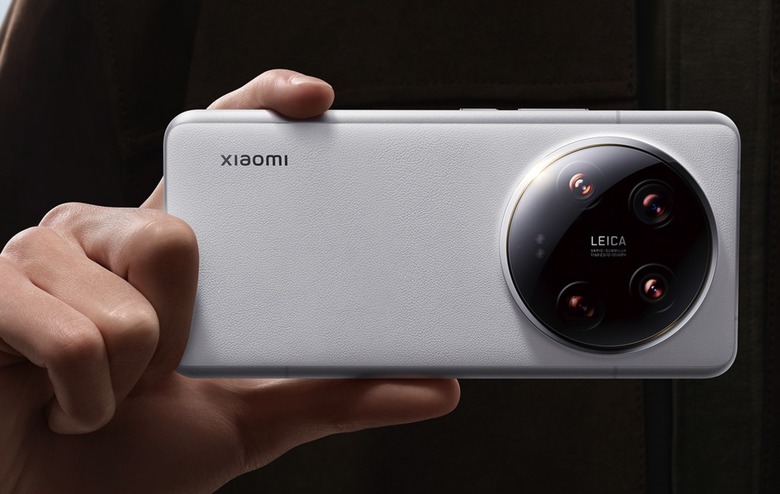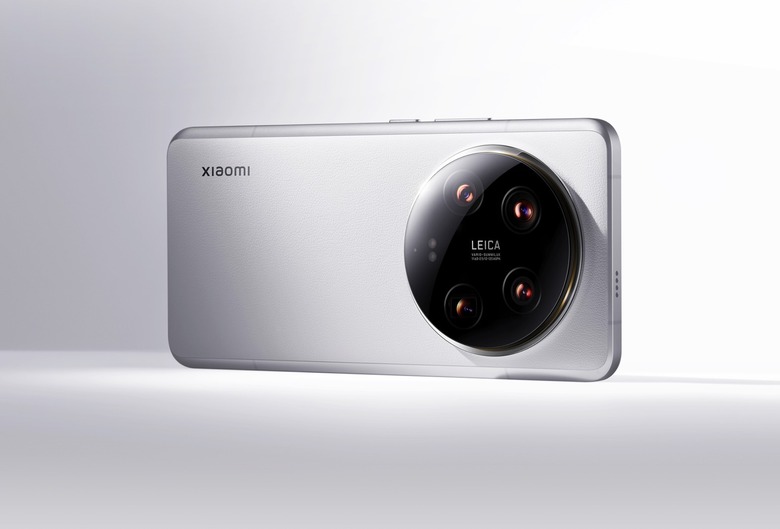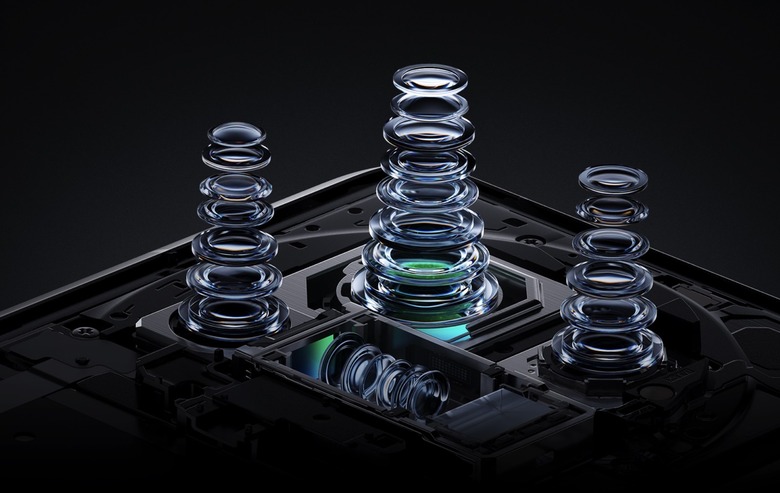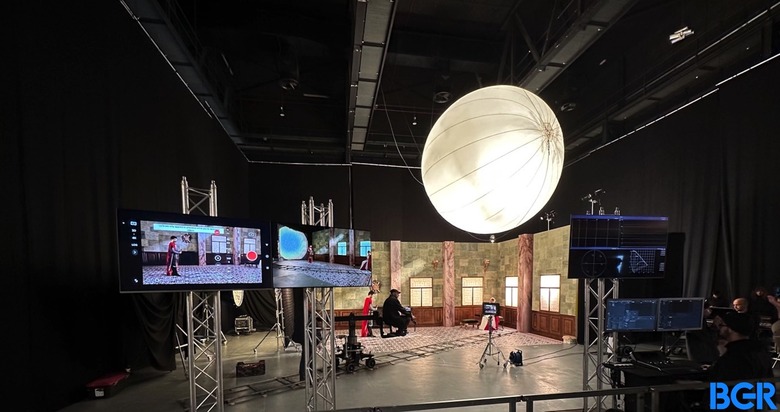Xiaomi 14 Ultra Wants To Be The Best Camera Phone You've Ever Used
Xiaomi unveiled the Xiaomi 14 Ultra earlier this week in China, but that event only gave us a tiny taste of what was about to come at the Mobile World Congress in Barcelona, Spain, on Sunday.
Xiaomi unveiled the Xiaomi 14 Ultra version that will hit international markets starting with Europe. The Chinese Android device vendor went out of its way to drive one massive point home: The Xiaomi 14 Ultra isn't just the best camera Xiaomi ever made, it's the best camera around.
Make no mistake, the Xiaomi 14 Ultra is the kind of flagship you expect from MWC and Xiaomi in 2024. It's got all the hot components you expect, including a large display and that Snapdragon 8 Gen 3 chip you're waiting for. It also has AI features, though artificial intelligence isn't this Ultra's main selling point. The Xiaomi 14 Ultra is all about the quad-lens camera on the back.
Let's get the "boring" stuff out of the way
Like I said, there's nothing boring about the specs. On the front, we have a new "All Around Liquid Display." This is Xiaomi's way of saying that the Xiaomi 14 Ultra curves on all sides and the corners. But the curvature is smaller than the previous Xiaomi flagships. Xiaomi ditched the "edge" display that Samsung made popular, and the Ultra will feel more like it features a flat display.
The glass covering it should be more durable than ever, thanks to Xiaomi Shield Glass. Its nanostructure should give it up to 10 times better drop resistance. But, as Xiaomi also said, you'd better not drop it.
As for the OLED panel itself, it's an LTPO screen that supports 1Hz to 120Hz refresh rates, up to 3,000 nits of brightness, 68 billion colors, and eye protection features.
The display material is part of what Xiaomi calls the Guardian structure, which also includes the aluminum frame and the rear material. The aluminum chassis stands out for the way it's built. Xiaomi says it takes a single block of metal and then cuts out the entire middle frame from it. This should increase the durability by 1.38 times compared to welding pieces of metal together.
On the back, surrounding the massive camera module, there's a new nano-tech vegan leather material. I'm not the biggest fan of this design choice for smartphones, but Xiaomi said it's supposed to be 6 times more resistant to wear.
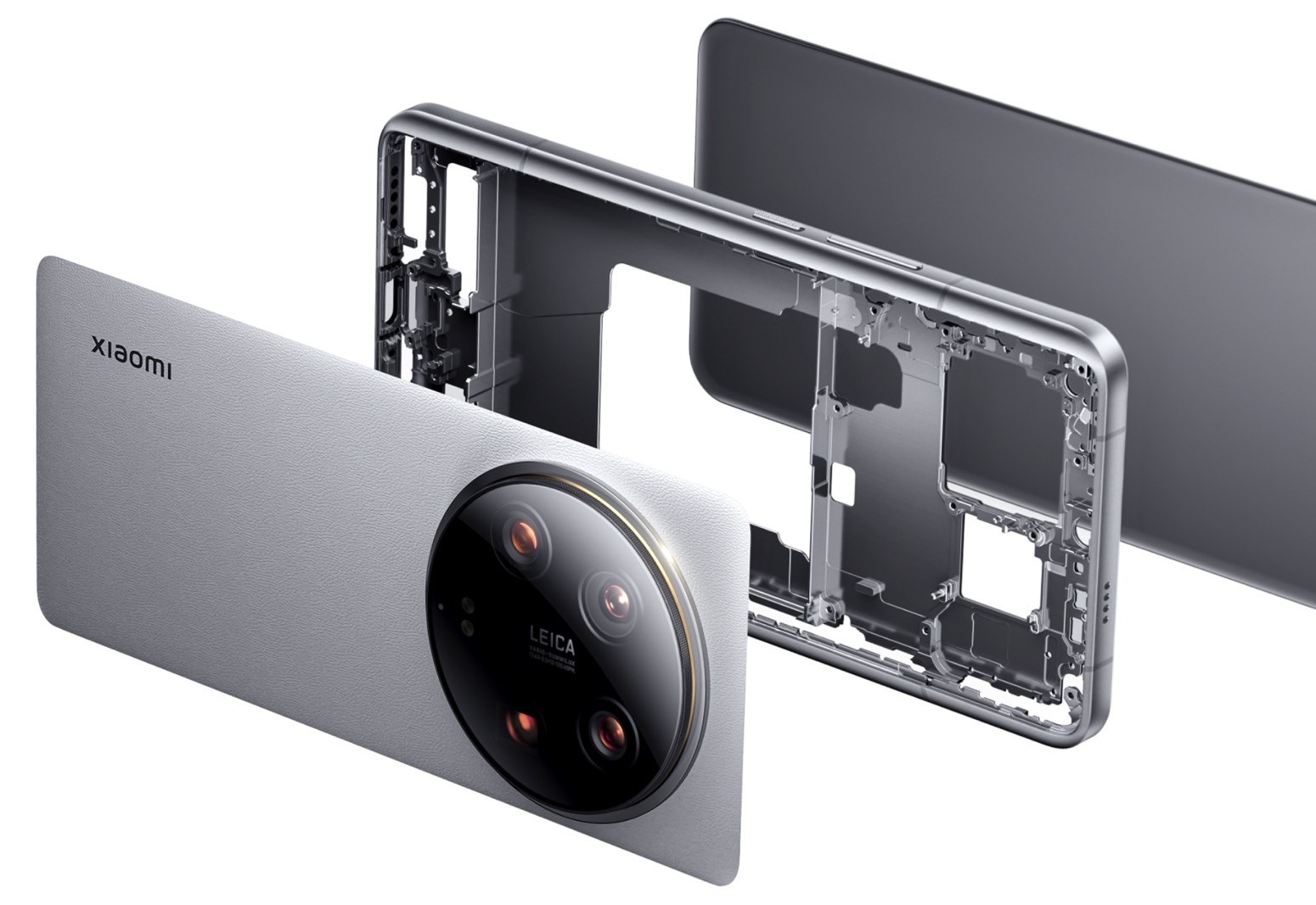
As for the actual performance, we're looking at the same Snapdragon 8 Gen 3 chip that powers the Galaxy S24 models and the regular Xiaomi 14 that's also launching alongside the Ultra. There's another key Qualcomm chip inside, the brand-new FastConnect 7800. This one enables Wi-Fi 7 speeds on the handset. As long as you have hardware at home capable of delivering the same Wi-Fi 7 connectivity.
Xiaomi's dual-channel IceLoop system is cooling the high-end hardware, a fancy name for a heat sync that covers both the chips and the rear-facing cameras. That way, you should be able to use the handset for longer, whether it's more intensive tasks or extended, continuous photo sessions.
Finally, the Xiaomi 14 Ultra has a 5,300 mAh battery that supports fast charging. That's 90W HyperCharge wired charging and 80W wireless HyperCharge support.
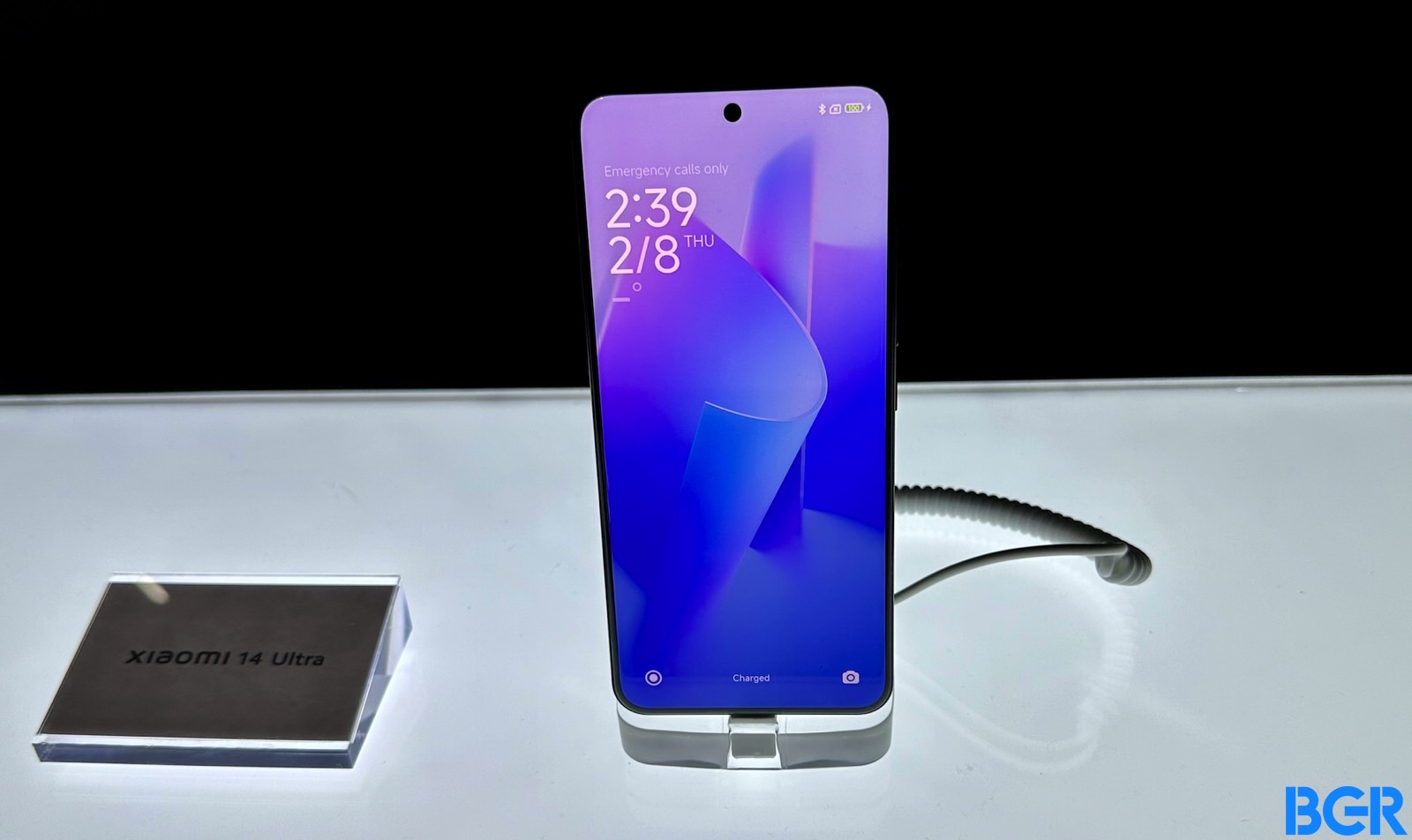
The Xiaomi 14 Ultra camera is the real star
Xiaomi placed four 50-megapixel sensors on the back of the Xiaomi 14 Ultra, working with Leica to deliver the best possible camera experience. Two of the four cameras are telephoto lenses, one of them of the periscope variety:
- 50-megapixel wide, f/1.6 or f/4.0, 23mm, 1.0" sensor, 1.6µm, multi-directional PDAF, Laser AF, OIS
- 50-megapixel ultrawide: f/1.8, 12mm, 122˚, 1/2.51", Dual-Pixel PDAF, TOF 3D, (depth)
- 50-megapixel periscope telephoto: f/2.5, 120mm, 1/2.51", Dual-Pixel PDAF (30cm – ∞), OIS, 5x optical zoom
- 50-megapixel telephoto: f/1.8, 75mm, 1/2.51", Dual-Pixel PDAF (10cm – ∞), OIS, 3.2x optical zoom
The result is a camera system that supports 6 focal lengths, with optical zoom ranging from 0.5x to 10x.
The main camera features a first for Xiaomi: support for variable aperture thanks to what the company called breakthroughs in engineering during a briefing ahead of the main event. This makes the Xiaomi 14 Ultra the first smartphone to feature a main camera with a step-less aperture and a 1-inch sensor.
In addition to the hardware breakthroughs, there's also AI at play here. Xiaomi designed an AI ISP for the Xiaomi Imaging Engine to allow it to use more efficiently computational photography algorithms. The AI ISP is apparently "deeply integrated" in the phone's HyperOS to "significantly expand its data processing capabilities and AI computational performance."
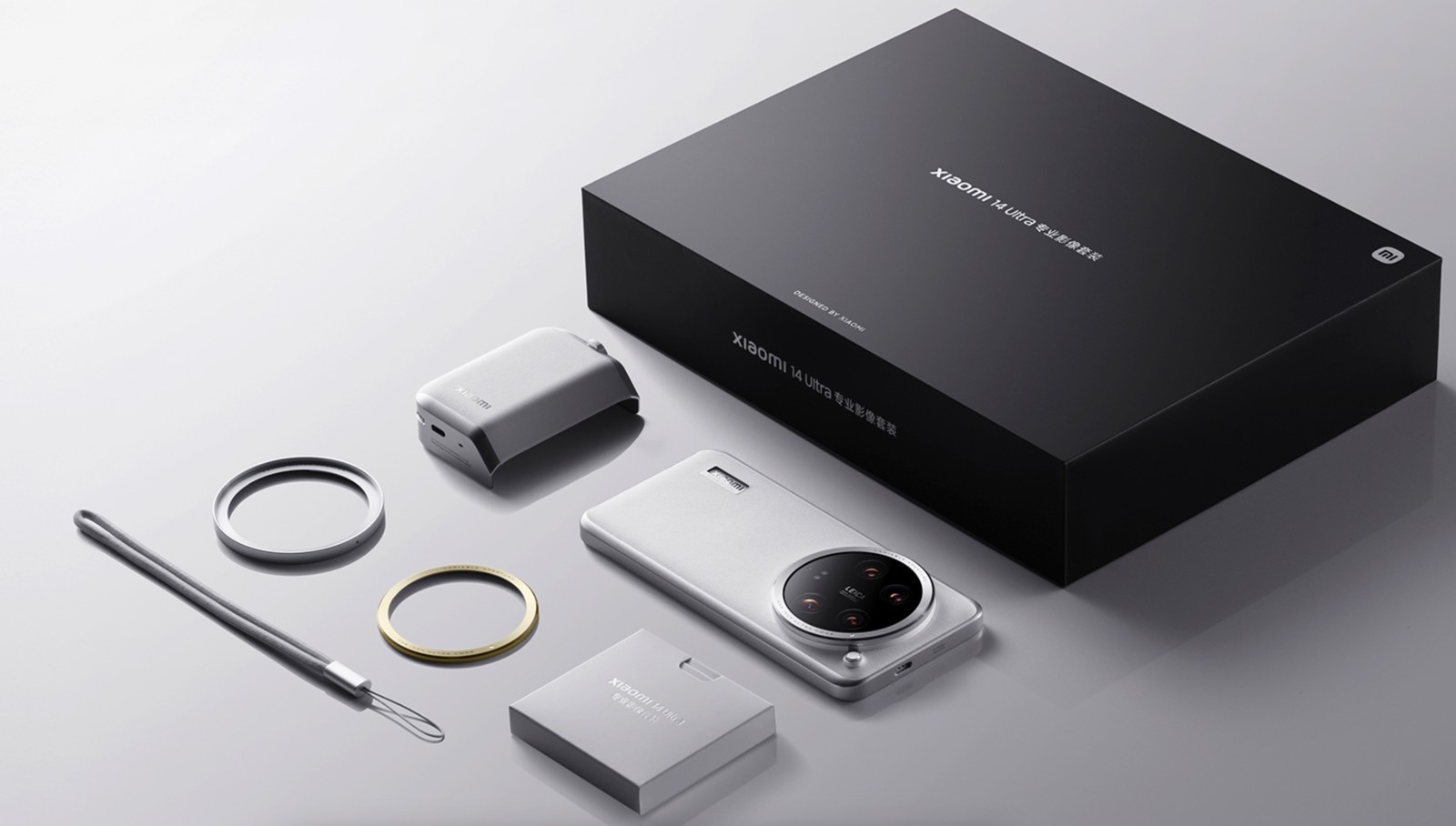
The Xiaomi 14 Ultra also comes with an optional photography-centric accessory, the Photography Kit. The device features additional buttons for quickly shooting and recording video, as well as an extra 1,500 mAh of battery juice and fast USB-C data transfers.
One more Ultra thing
The Xiaomi 14 Ultra isn't just about taking the best possible photos, in different lighting conditions or zoom levels. The part that really blew my mind during the briefing concerns video recording. Xiaomi hosted a briefing for the Ultra at a studio near Barcelona. The demo started with shooting a movie scene in studio lighting conditions.
The demo aimed to showcase the Xiaomi 14 Ultra's powerful video recording capabilities in action. Actual professionals used the handset to shoot video in front of us, members of the media. We all saw the phone shooting in 4K, HDR, and LOG modes to prove a point: The Ultra is the only camera you need for photos or videos.
Images you'll see in this post would not do the demo justice. That's because I wasn't shooting photos with the event with the newest Xiaomi 14 Ultra. Instead, I used my iPhone 14 Pro to take the photos above and below. And this is why I'm slightly jealous of what this phone can do.
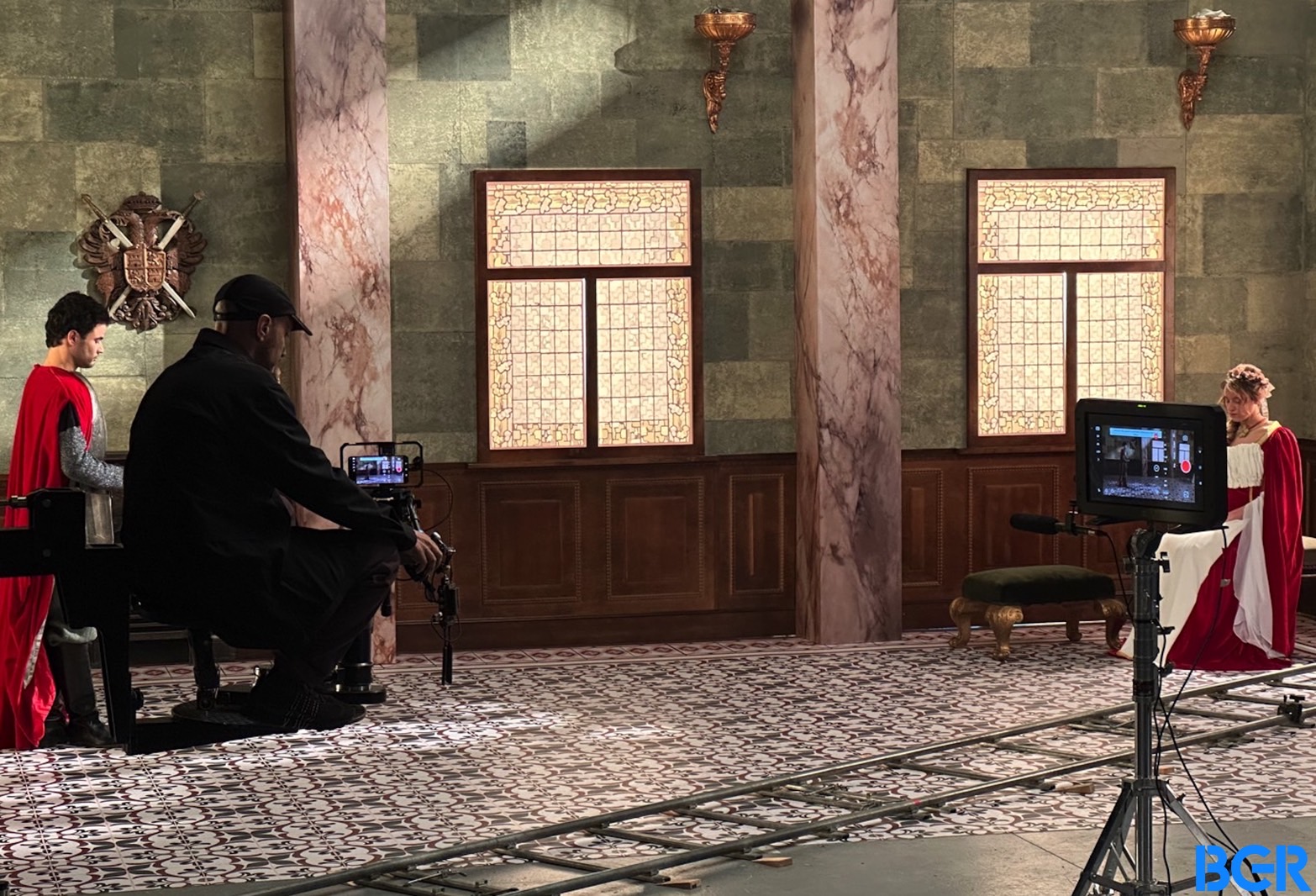
Price and release date
The Xiaomi 14 Ulra will cost €1,499 ($1,610) in Europe this March. The cheaper Xiaomi 14 will be more affordable at €999 ($1,083). Like the Honor Magic 6 Pro released earlier on Sunday, the Xiaomi flagship will not be available for purchase in the US.
Xiaomi also introduced the Xiaomi Watch S3, which features interchangeable bezels. Finally, Xiaomi announced the 12.5-inch Pad 6s Pro, its biggest tablet to date.
